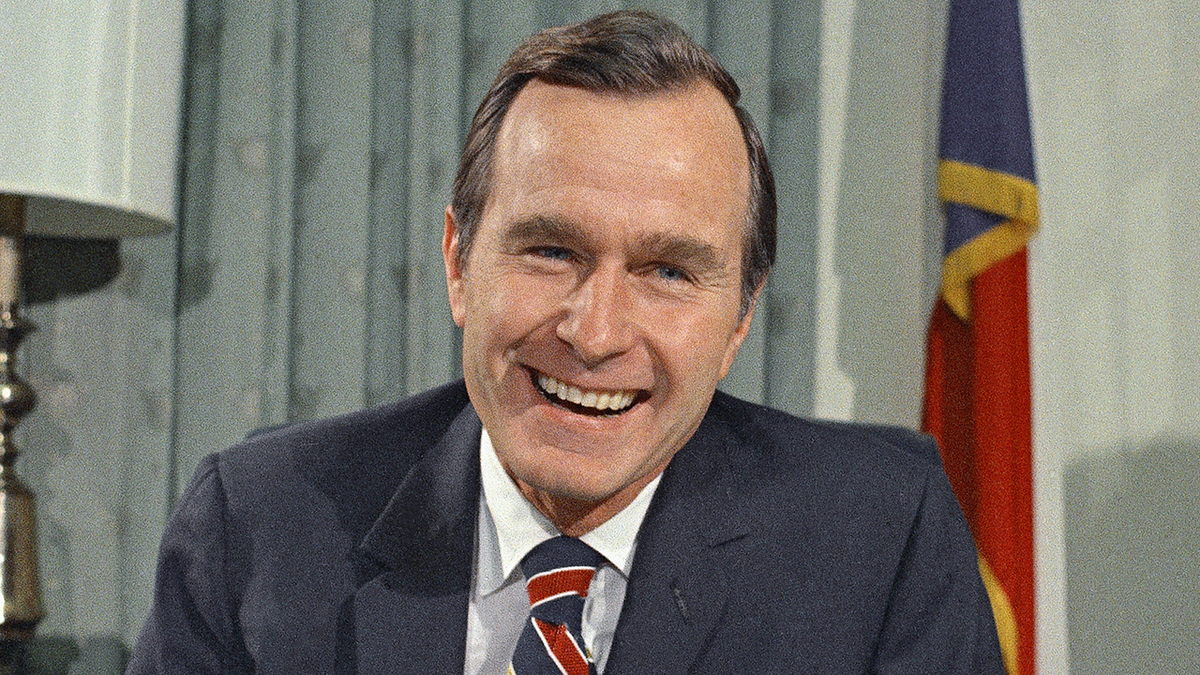
I was born on November 11, 1989, the day after the Berlin Wall fell. Nearly 30 years later, President George H.W. Bush, the heroic leader who presided over the fall of the Soviet Union, has passed.
Unfortunately, my generation – the so-called millennials – has no memory of the Soviet Union, nor much of Bush’s presidency. It is no coincidence that socialism’s popularity is rising again as this generation – the first to be ignorant of the anti-communist legacy of Bush and his predecessor, President Ronald Reagan – comes of age.
Anti-communism was an extremely unifying movement in American political life during the late 20th century. From the Kennedy-led Bay of Pigs invasion in Cuba in the 1960s, to the covert funding of the Soviet-Afghan War under President Reagan in the 1980s, Democrats and Republicans were united in defeating what was famously called by all “the evil empire.”
Anti-communism was also a component of the “big tent” modern conservative movement – one that the movement sadly has lost, which has contributed to the lack of cohesion within present day Republican Party foreign policy circles.
Former communists turned anti-communists, like Whittaker Chambers and James Burnham, who left the movement after witnessing some of the most horrific acts of the Soviet regime, played a critically influential role in the middle of the 20th century. It's a shame that millennial socialist leaders, like 29-year old congresswoman-elect Alexandria Ocasio-Cortez, have no memory of the horrible legacy of the communist regime that was responsible for the deaths of over 50 million people, and no memory of those who fought against it like our 41st president.
The millennial generation could learn from the 41st president's famous words: "We know what works. Freedom Works. We know what's right. Freedom's right."
That wasn't just talk. Indeed, it was the President Bush who slammed the door shut on the most murderous regime in human history. It was President Bush who carefully led NATO to shepherd the collapse of the USSR under Mikhail Gorbachev, and allow for a relatively peaceful dissolution of the former Soviet bloc and the transition to a market economy.
President Bush didn't stop there. On this side of the Atlantic, he negotiated and instituted NAFTA, the largest free trade bloc in human history, which has been updated and modernized by President Donald Trump and today's Canadian and Mexican leaders in the USMCA.
President Bush even attempted to run a balanced budget through unpopular fiscal tightening in the 1990s (which arguably was a major contributor to his 1992 electoral defeat), so that my generation wouldn't have to pay for fiscal irresponsibility decades later. It's something that I'm sure few in my entitled generation have ever fathomed to be grateful for.
Finally, today’s millennials should remember President Bush's fierce belief in the power of volunteerism – his "thousand points of light" vision, which was a fundamental belief that free people and hard work have the power to successfully fight social ills without the management of government at every turn. It's a message that must be heard by today's young socialists who call for immediate government intervention and an increasingly larger welfare state to fight every social ill.
Our 41st president has passed onto the next world. But we should seize this moment to go back and learn from his remarkable legacy.








































